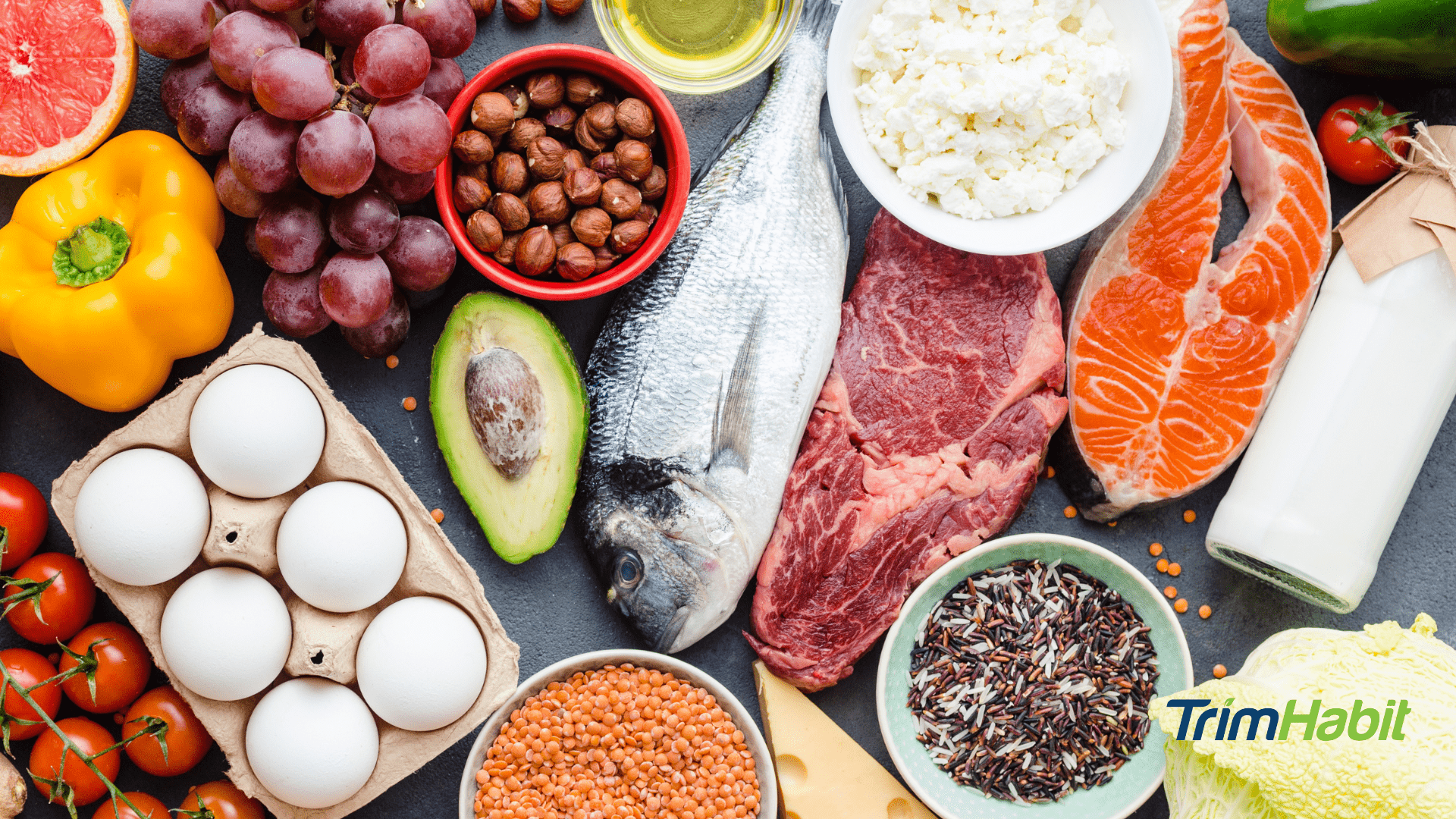Fad diets come and go, promising quick ways to lose weight, but intermittent fasting has remained popular for a reason. Some see it as a flexible way to manage eating habits while others worry that limiting meals to certain time windows could lead to nutritional deficiencies.
So, does intermittent fasting lead to nutritional imbalance?
Let’s break down the myths and see what the science really says.
Understanding Intermittent Fasting
What is Intermittent Fasting?
Intermittent fasting is an eating pattern that alternates between fasting periods and designated eating windows. Rather than focusing solely on food choices, it emphasizes meal timing and often leads to natural calorie restriction.
Research suggests it can support weight loss and metabolic health1. Common methods include alternate-day fasting and time-restricted eating, such as the 16/8 method, where fasting lasts 16 hours, followed by an 8-hour eating period.
How Intermittent Fasting Works
Intermittent fasting involves alternating between eating and fasting periods, allowing the body to shift from using glucose as its primary energy source to burning stored body fat.
When food intake is restricted, insulin levels drop, making it easier for the body to access fat stores for energy. This process can contribute to weight loss, but if fasting leads to excessive hunger and overeating during eating windows, it may also result in weight gain. Proper meal composition and portion control play a role in maintaining balance.
Fasting periods also promote improved insulin sensitivity, reducing the risk of insulin resistance and type 2 diabetes. Additionally, intermittent fasting increases human growth hormone production, which plays a role in fat metabolism, muscle preservation, and cellular repair2,3,4.
Autophagy, a process where the body removes damaged cells and regenerates new ones, is also enhanced during fasting, potentially supporting longevity and disease prevention5.
The effects of intermittent fasting vary based on fasting duration, meal composition, and individual metabolism. Still, research suggests it may benefit not only weight management but also brain function, inflammation levels, and heart health. Many of these health benefits are linked to the way fasting influences hormone levels, metabolism, and cellular function over time6,7.
Does Intermittent Fasting Lead To Nutritional Imbalance?
Myth #1: Intermittent Fasting Causes Severe Nutrient Deficiencies
One of the most common misconceptions about intermittent fasting is that it inevitably leads to nutrient deficiencies due to restricted eating windows. In reality, the risk of deficiencies depends on food choices rather than fasting itself.
Fact: Nutrient Intake Depends on Food Quality, Not Just Timing
Intermittent fasting does not inherently cause deficiencies. If meals are well-balanced and contain nutrient-dense foods, you can meet your daily requirements within your eating window. Lean protein, healthy fats, complex carbohydrates, vitamins, and minerals can all be consumed adequately in a shorter timeframe.
However, if fasting leads to poor meal choices, such as consuming primarily processed foods, skipping vegetables, or not getting enough protein, deficiencies can arise. The key here is to prioritize nutrient-dense foods within the eating period.
Myth #2: Fasting Reduces Muscle Mass Due to Protein Deficiency
Some believe intermittent fasting leads to muscle loss because of insufficient protein intake or prolonged fasting periods where the body supposedly breaks down muscle for energy.
Fact: Muscle Preservation Is Possible with Adequate Protein and Strength Training
Protein intake is essential for muscle maintenance, and it is entirely possible to consume enough protein within an eating window. Many individuals practicing intermittent fasting follow protein pacing, distributing protein intake across their meals to support muscle preservation.
Resistance training also plays a significant role in maintaining muscle mass. Research suggests that as long as protein intake remains sufficient and exercise is incorporated, intermittent fasting does not necessarily cause muscle loss8. Additionally, fasting triggers growth hormone release, which helps protect muscle tissue.
Myth #3: Fasting Leads To Low Blood Sugar And Nutrient Imbalance
Many people assume that fasting results in dangerously low blood sugar and nutrient imbalances, making it unsustainable for long-term health.
Fact: Blood Sugar Regulation Improves with Adaptation
While some may experience initial dips in blood sugar levels when starting intermittent fasting, the body adapts over time, improving its ability to regulate glucose. For most healthy individuals, fasting does not lead to chronic low blood sugar.
With nutrient balance, focusing on whole foods, lean protein, fiber-rich carbohydrates, and healthy fats during eating periods supports blood sugar control and prevents deficiencies. Those with diabetes or metabolic disorders should consult healthcare professionals before starting intermittent fasting.
Myth #4: Fasting Lowers Energy Levels and Leads to Poor Nutrient Absorption
A common fear is that fasting will make people feel constantly fatigued and unable to absorb essential nutrients properly.
Fact: Energy Levels Depend on Nutrient Intake and Adaptation
Initially, some individuals may feel sluggish as their bodies adjust to fasting. However, energy levels typically stabilize once the body shifts to using stored fat for fuel. Fasting can enhance mitochondrial efficiency, leading to sustained energy levels9.
Nutrient absorption occurs efficiently if meals include a variety of whole foods. The digestive system can effectively absorb nutrients within a condensed eating window, provided meals are balanced. Consuming diverse food sources rich in vitamins and minerals ensures adequate nutrient uptake.
Myth #5: Intermittent Fasting Is Not Suitable for Older Adults Due to Nutrient Risks
Concerns exist that fasting may lead to nutrient deficiencies and muscle loss, particularly in older adults who have higher protein requirements.
Fact: With Proper Planning, Intermittent Fasting Can Be Adapted for Older Adults
Older adults need to ensure sufficient protein intake to preserve muscle mass and prevent sarcopenia (age-related muscle loss). Intermittent fasting can be tailored to include higher protein intake, strength training, and nutrient-dense meals to support healthy aging.
Maintaining adequate calcium, vitamin D, and other essential micronutrients is possible through strategic meal planning. Consulting a healthcare provider before starting intermittent fasting ensures that individual nutritional needs are met.
Myth #6: Fasting Depletes Electrolytes and Causes Dehydration
Some worry that fasting leads to dehydration and electrolyte imbalances, especially with extended fasting periods.
Fact: Proper Hydration and Electrolyte Intake Prevent Imbalances
Drinking sufficient water and consuming electrolyte-rich foods or supplements can prevent dehydration and imbalances. Sodium, potassium, and magnesium are essential electrolytes that can be maintained through food choices like leafy greens, nuts, seeds, and electrolyte drinks.
Many people find that their hydration improves with fasting because they focus more on water intake. Herbal teas and mineral water can further support hydration.
Is Intermittent Fasting Right For You?
Intermittent fasting is not a universal strategy. Individual factors such as age, medical conditions, activity levels, and dietary preferences influence whether intermittent fasting is a suitable choice. Those with a history of eating disorders, metabolic disorders, or chronic illnesses should consult a healthcare professional before adopting a fasting regimen.
For healthy individuals, intermittent fasting can be an effective way to support weight management and metabolic health, provided nutrient intake is prioritized. If fasting leads to fatigue, irritability, or nutrient imbalances, adjusting the eating window or meal composition may help.
Athletes and highly active individuals may need a more tailored fasting approach to ensure sufficient energy intake. Women may experience hormonal fluctuations with intermittent fasting and should monitor their response to fasting. Pregnant or breastfeeding women should avoid fasting unless advised otherwise by a healthcare provider.
Practical Tips For Maintaining Nutritional Balance With Intermittent Fasting
Prioritize nutrient-dense foods.
Whole foods, lean protein, healthy fats, and fiber-rich carbohydrates provide essential nutrients. Minimizing ultra-processed foods helps maintain energy levels and supports metabolic health. Eating a variety of colorful fruits and vegetables ensures adequate vitamin and mineral intake.
Ensure sufficient protein intake.
Higher protein intake supports muscle preservation, particularly for older adults. Distributing protein evenly across meals improves absorption and muscle maintenance. Sources like eggs, poultry, fish, tofu, and legumes provide quality protein within eating windows.
Balance macronutrients for sustained energy.
A mix of protein, healthy fats, and fiber in meals supports blood sugar regulation and metabolic health. Limiting refined sugars and unhealthy fats reduces the risk of nutrient imbalances. Whole grains, nuts, seeds, and lean meats provide sustained energy and essential nutrients.
Stay hydrated and replenish electrolytes.
Drinking water, herbal teas, and electrolyte-rich beverages prevents dehydration. Consuming potassium- and magnesium-rich foods supports electrolyte balance. Bone broth and coconut water can also help maintain hydration levels.
Pay attention to hunger and energy levels.
Adjusting meal composition and timing based on body signals helps maintain a balanced diet. Seeking professional advice ensures intermittent fasting aligns with individual nutritional needs. If symptoms like dizziness or fatigue persist, modifying fasting periods or nutrient intake may be necessary.
Conclusion
Intermittent fasting does not automatically lead to nutritional imbalance, but success depends on making smart food choices. Eating nutrient-dense meals, ensuring adequate protein intake, and staying hydrated all help maintain balance.
Intermittent fasting is just one way to structure eating habits, and it works best when it fits a person’s individual needs and lifestyle. Instead of focusing solely on fasting, the bigger picture is what you eat, how much, and whether it supports your long-term health.









